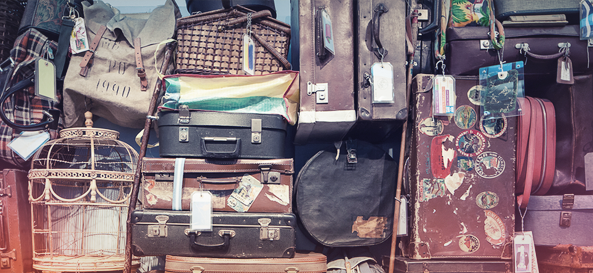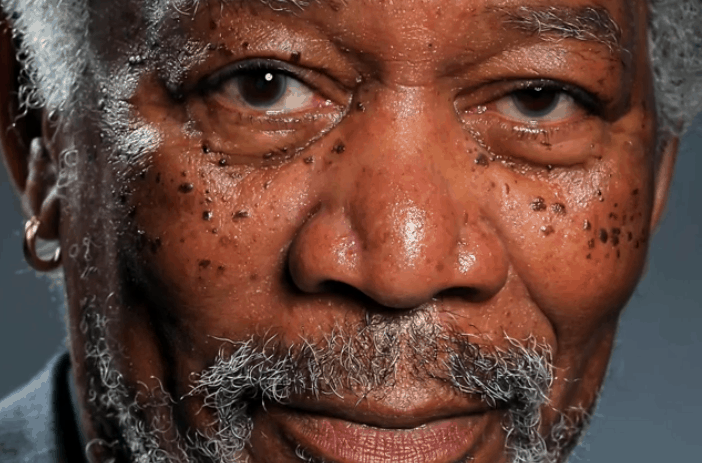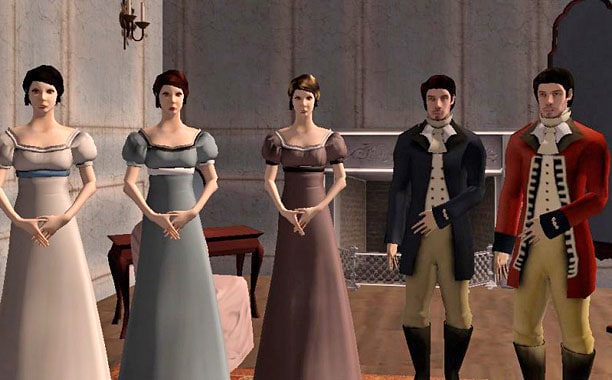
I spent most of my twenties collecting stuff.
There was the couch from the family I babysat for on occasion, because they were done using it, and hey, it was free. Then there was the microwave my parents bought me before I left for college—so that, even if I missed a meal in the dining hall, I would always be equipped with easy mac or microwave popcorn.
I lugged that microwave with me to six or seven different residences over the course of four years.
The more years that passed, the more my plot of possessions grew. I bought my very first, very own vacuum cleaner when I was 21 (I had always used a roommate’s before that). Then there was my first set of silverware, the new (used) car with my name on the title and the old crockpot my mom handed over when she bought a new one.
I felt so adult-like owning these things—vacuuming my own carpet with my own vacuum cleaner, cooking my own roast for dinner in my own crockpot (the most brilliant kitchen appliance ever invented), signing papers for my very first car.
But it wasn’t just physical things I collected.
I collected jobs, vacations, trips, people, experiences. I was building my life, after all, and it included Puerto Rico one summer with a friend, even though my parents thought it would be too dangerous and cost too much. It included working as a hostess and a server, and even a bartender for a time, and then a barista, and then a short stint in corporate America. It included boyfriends and roommates and more friends than I knew what to do with.
Then it included graduate school because I wanted to keep growing and collecting ideas and opinions, and because I hoped to collect a degree that would give me a job I actually liked. Honestly I wasn’t really sure where I was going, or what I was doing, so I just tasted and tried a little bit of everything.
I wasn’t sure what I was building, so I just collected the raw material.
So you can see why, as I rounded the corner toward the end of my twenties, I realized a had a lot of stuff I didn’t need, didn’t want, and was weighing me down.
I was feeling sort of stuck.
According to a recent UCLA study called “Life at Home in the 21st Century,” I’m not alone in feeling trapped by the stuff I’ve collected. Families all over the United States are feeling increasingly weighed down by the sheer volume of their possessions. In fact, for all of the “stuff” American families own, the study showed they only use a small percentage; and even worse, the more stuff (clutter) families owned, the higher the production of stress hormones (in mothers).
I was fascinated by this study in light of my experience, and it made me wonder: Is this about more than just physical possessions?
Is it possible that less really is more?
Mostly we tend to think more is more. In America, at least, we assume that more success, more money, more square-footage, more food, more travel, more equals adulthood, more equals a better life. But what if, in order to get the satisfying and abundant life Jesus promised, we don’t need more opportunities, more money or more stuff—what if we need less?
In 2010 I decided to hit the reset button on my life. That meant quitting my full-time job (which promised me a steady paycheck, health insurance, a 401k and a way to pay off my graduate school loans), moving out of my apartment, selling all of my precious collected possessions, and starting over. I was going to do things differently this time. I was going to live with less, to decide what I really wanted to do and to go after it.
What I really wanted to do was go on a road trip and write a book about it. I really wanted to be an author.
So I found a friend who wanted to travel with me, and we packed everything we owned into my small car. We made a plan to hit the road; and I’ll never forget the question we were asked, just a few weeks into our trip.
We had just finished eating dinner with total strangers—Sean and Eva—who had found the blog we were keeping and agreed to cook for us if we would come over to their house. During dinner, we talked to them about what we were doing and why. They asked questions and listened. Then Eva stood up to clear plates.
“What do you need?” she asked.
I slouched down a little when she said it, putting my hand on my stomach. “I’m so full,” I said, “I don’t need anything.”
“I don’t just mean right now. I mean in general. What can we give you? Do you need money? Contacts? Stuff? Anything.Really, we’d love to help.”
Her offer was so generous, but I’ll never forget what happened in that moment. As I thought about our car parked outside filled to the brim with everything I owned, I realized I didn’t need a single thing. It was such a strange sensation to have so little and to feel so content.
Over and over again while I traveled, this message was reiterated: Less is more.
I used to see life as a destination in which the first person to finish with the most stuff wins. Now I’m learning to see life as a journey, to which we’ve all been given an invitation. I’m learning that, in order to go on a journey, I have to choose what to pack. I can only take so much with me. There is only so much room in my suitcase.
And what I bring says a lot about what I really want.






















